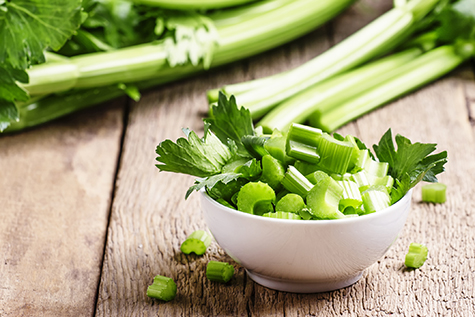Are You Getting Enough of this Crucial Cell Salt?

Health researchers (as well as your mom) have been telling you for years that you need to eat more fruits and vegetables for good health. Seems we’re always hearing something new about their many health benefits. And, now, I’ve got yet another reason for you to eat more fruits and vegetables, especially if you’re over age 50 and want to protect your bones.
Potassium: The Cell Salt That Keeps Your Bones Strong
If you’re over 50, you might not be getting enough of the cell salt mineral potassium. Especially if your intake of fruits and vegetables is not quite what the doctor ordered. In fact, it’s estimated that only about 5% of Americans eat enough fruits and vegetables to get optimal levels of potassium. The recommended daily intake of potassium is 4,700 mg which roughly equals about 13, half-cup servings of fruit and vegetables per day. Yet, the average intake of potassium is about 2,500 mg for women and 3,200 for men.
Potassium cell salts are a combination of potassium, bicarbonate and citrate. They make up a fluid mineral “bath” that many of your body’s cells are constantly immersed in. They help regulate the function of the intricate cellular processes that take place throughout your body, most notably your heart, brain and kidneys. These include the following:
- Help regulate heartbeat
- Help your nervous system send messages to your brain
- Improves memory
- Fight infection and inflammation
- Boosts energy levels
- Help regulate intercellular fluids
Recently, researchers at the University of Surrey in England have learned that potassium cell salts also have another important function in preserving your health. That is, helping to prevent osteoporosis and future fractures.
Because most Americans don’t eat enough fruits and vegetables, they tend to have too high an acid content in their blood and tissues. This can cause inflammation throughout your body that allows vascular plaque, breakdown of tissues, infections, bone breakdown, and disease to develop. Fruits and vegetables help to alkalize the acidic content of your blood to stop these negative processes.
As the University of Surrey researchers note, your American diet may be too high in animal and cereal proteins that create a high acidic content to your blood. Without adequate amounts of alkalizing potassium cell salts, your body calls on your bones to help alkalinize your blood. It “leaches” calcium from your bones which leaves them in a weaker, calcium deficient state. It also leaves your bone matrix in a weakened state where bones can become more porous. Osteoporosis can set in and debilitating fractures can start occurring.
Adequate intake of potassium cell salts, then, is crucial to both balancing pH levels throughout your cells, and preserving bone strength. When enough potassium is present, calcium (and also magnesium) is no longer leached from your bones. The DASH intervention trial reported that increasing produce intake up to about 9 servings per day results in less calcium lost as measured through urine. Just 60 mg of calcium lost per day can mean an 18% to 20% loss of bone calcium over 10 years.
It’s not hard to get enough potassium if you’re eating enough fruits and vegetables. High potassium fruits include banana, tomatoes/juice, oranges, lima beans, white and sweet potatoes, swiss chard, soybean, avocado, spinach, lentils. Other foods that contain good-to-high levels of potassium include seeds, nuts, and almond milk.
Besides not having an adequate intake of potassium from foods, your body may also be losing its potassium stores for these reasons:
- Sweating profusely through either exercise or heat exposure.
- Bowel disorders like IBS or Crohn’s, which may result in frequent episodes of diarrhea, loss of minerals and dehydration.
- Flu or other illnesses which cause vomiting. This can result in dehydration and loss of minerals.
- Diuretic medication usage. Designed to bring blood pressure down by causing greater excretion of fluids through urination, these medications can cause potassium deficiencies. If you take these drugs, be sure you also take supplemental potassium.
- Too high sodium intake.
Not sure if you are deficient in potassium? There are several tell-tale signs and symptoms that can warn you of low potassium levels. Mild-to-moderate deficiency symptoms can include:
- Weakness, or cramping, of arm or leg muscles
- Tingling or numbness in fingertips, feet, or other body areas
- Constipation
- Weak pulse
More severe deficiency symptoms include:
- Heart palpitations that make you uncomfortable or short of breath
- Urinating large amounts and feeling thirsty often
- Sudden drop in blood pressure causing fainting
- Hallucinations, abnormal behavior
*Note: If you experience these symptoms, you should visit your doctor, or ER, immediately, as they could be signalling a heart attack or stroke.
Although many people don’t get enough potassium from their foods, it doesn’t have to result in bone weakness and fracture. If you’re in doubt, ask your doctor for a blood test to measure your potassium. Taking a good multivitamin and mineral supplement can boost your potassium intake. In addition, there are several good “electrolyte” mixes available in health food stores which contain good amounts of potassium, calcium and magnesium. It’s important to get enough potassium in your diet to support good bone health now and as you age.
